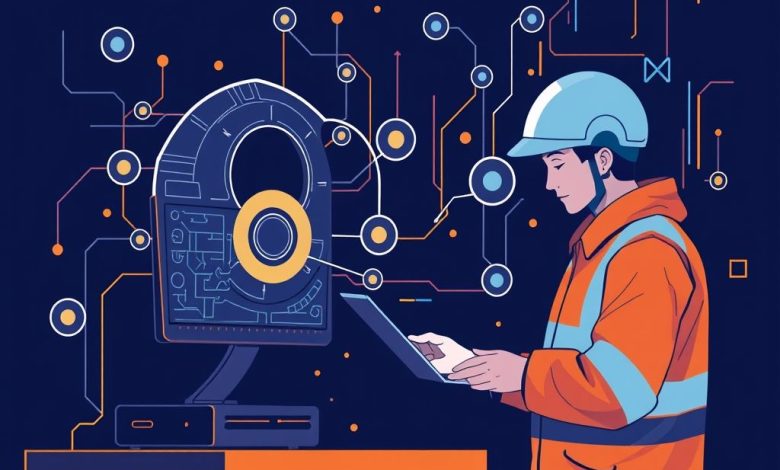How GenAI Will Impact Field Service

Introduction
Artificial intelligence (AI) has been transforming various industries over the past decade, and its latest iteration, Generative AI (GenAI), is poised to revolutionize the field service sector. GenAI combines traditional machine learning algorithms with large language models to create more sophisticated and human-like AI systems. This technology has the potential to significantly enhance efficiency, accuracy, and customer satisfaction in field service operations.
- The Current State of Field Service
- The Rise of GenAI in Field Service
- Enhanced Scheduling and Resource Allocation
- Improved Diagnostic Capabilities
- Automated Data Entry and Reporting
- Personalized Customer Experiences
- Predictive Maintenance and Proactive Issue Prevention
- Challenges and Considerations
- Conclusion
The Current State of Field Service
Field service management involves sending technicians to customers’ locations to diagnose and repair equipment or provide maintenance services. Traditionally, this process relies heavily on human expertise and manual data entry. While modern field service management software has improved operational efficiency, there are still limitations to automation and decision-making capabilities.
Challenges in Traditional Field Service
- Inefficient scheduling and resource allocation
- Limited real-time diagnostic capabilities
- Manual data entry errors
- Lack of personalized customer experiences
- Difficulty in predicting and preventing issues proactively
The Rise of GenAI in Field Service
Generative AI is set to address many of the challenges faced by traditional field service operations. By leveraging vast amounts of data and advanced natural language processing capabilities, GenAI can transform various aspects of field service management.
Enhanced Scheduling and Resource Allocation
GenAI can analyze historical data, current job statuses, technician availability, and customer preferences to optimize scheduling. It can predict peak demand periods, allocate resources efficiently, and even suggest alternative schedules when unexpected events occur.
#### Example Scenario:
A field service company uses GenAI to manage its dispatching system. When a high-priority emergency call comes in, the AI quickly analyzes available technicians, travel times, and previous interactions with the customer. It then suggests the best-suited technician and provides a precise estimated time of arrival (ETA).
Improved Diagnostic Capabilities
GenAI-powered diagnostic tools can analyze symptoms reported by customers, cross-reference them with a vast knowledge base, and provide probable causes and solutions. This capability reduces the need for initial site visits and improves first-time fix rates.
#### Example Implementation:
A home appliance manufacturer integrates GenAI into its customer support chatbot. When a customer reports a “washing machine not spinning,” the AI quickly searches its database and responds with likely causes, troubleshooting steps, and common solutions. If the issue persists after self-troubleshooting, it recommends scheduling a technician visit.
Automated Data Entry and Reporting
GenAI can interpret voice commands, handwritten notes, or text messages from customers and automatically populate service tickets with relevant information. This eliminates manual data entry errors and ensures consistent data capture across all interactions.
#### Example Use Case:
A utility company deploys GenAI-powered smart glasses for its field technicians. As they interact with customers and perform tasks, the AI transcribes their voice commands, captures images of equipment, and generates detailed service reports. These reports are automatically synced with the company’s CRM system, ensuring up-to-date customer records and streamlined billing processes.
Personalized Customer Experiences
By analyzing customer interaction history, preferences, and behavior patterns, GenAI can tailor responses and recommendations to individual customers. This leads to increased customer satisfaction and loyalty.
#### Example Application:
An HVAC company implements GenAI to power its customer relationship management (CRM) system. When a customer calls to schedule a routine maintenance check, the AI analyzes their previous service history, energy usage patterns, and equipment specifications. It then offers personalized recommendations for energy-saving upgrades or predictive maintenance schedules based on the customer’s specific needs and budget constraints.
Predictive Maintenance and Proactive Issue Prevention
GenAI can analyze sensor data from connected devices, historical performance metrics, and external factors like weather patterns to predict potential equipment failures before they occur. This allows for proactive scheduling of maintenance visits and minimizes downtime.
#### Example Implementation:
A manufacturing plant uses GenAI to monitor its production equipment. The AI continuously analyzes vibration patterns, temperature readings, and other sensor data. When it detects anomalies indicative of potential failures, it sends alerts to the maintenance team, allowing them to schedule preventive maintenance during planned downtime rather than waiting for costly breakdowns.
Challenges and Considerations
While GenAI holds significant promise for field service operations, there are several challenges that need to be addressed:
- Data privacy and security concerns
- Ensuring transparency and explainability of AI decisions
- Addressing bias in training datasets
- Providing adequate training for staff to work effectively with GenAI systems
- Managing the integration of GenAI with existing legacy systems
Conclusion
The advent of Generative AI marks a significant turning point in the evolution of field service management. By enhancing scheduling, diagnostics, data entry, customer experience, and predictive maintenance capabilities, GenAI has the potential to transform field service operations into more efficient, accurate, and customer-centric practices.
However, successful implementation of GenAI in field service requires careful planning, robust data governance strategies, and ongoing investment in employee training. As the technology continues to advance, field service companies that embrace GenAI early will likely gain a competitive edge in terms of operational efficiency, customer satisfaction, and bottom-line profitability.
As we move forward in this AI-driven era, it’s crucial for field service managers to stay informed about the latest developments in GenAI and its applications. By harnessing the power of GenAI, field service organizations can position themselves at the forefront of technological innovation while delivering exceptional value to their customers.




